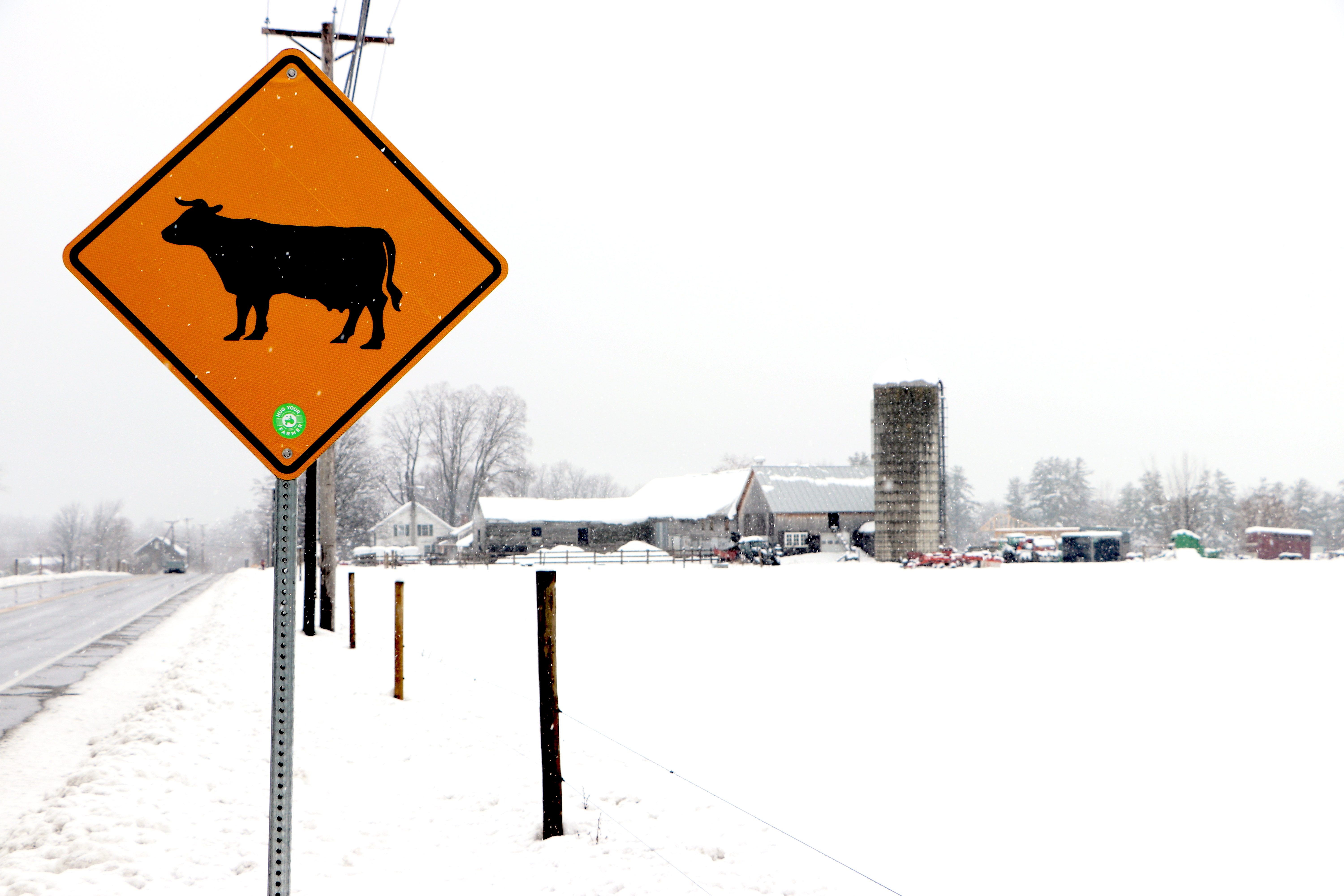
Winter’s Early Arrival Challenges Vermont’s Farmers
Power Outages, Barn and Water Concerns now part of daily routine
November 28, 2018 / Montpelier, VT - Despite the calendar, winter seems to have arrived. "A tough job gets even tougher this time of year,” Agency of Agriculture, Food & Markets Secretary Anson Tebbetts commented after this week’s wintery weather. “If getting up at 4am every day wasn’t tough enough, Mother Nature has now added heavy, wet snow to the roof of the barn!”
Winter weather conditions including snow, cold and winds present additional challenges for Vermont’s hard working farmers. The Vermont Agency of Agriculture, Food & Markets wishes for all our farmers to remain safe while handling these added conditions to their daily routines. Below are a number of reminders and resources for folks involved in our farming and working lands enterprises.
- Be prepared for power outages. A back-up generator with sufficient fuel to run for extended periods is highly recommended.
- If it is safe to do so, shovel the snow off barn and house roofs. If you cannot safely shovel your roof, contact a professional. The weight of ice or rain added to the weight of the snow currently on roofs may exceed the capacity of the structure and lead to a roof collapse. For helpful advice, please visit https://agriculture.vermont.gov/pr/agency_of_ag_issues_winter_reminder_to_farmers.
- Apply sand or gravel to walkways used by workers or livestock.
- Charge cellphones and cameras. Keep flashlights, with batteries, handy.
- Pump and store adequate supplies of drinking water for humans and animals in case of power outages. For a list of Vermont water haulers, please visit https://agriculture.vermont.gov/2018WaterHaulers.
- Be prepared for delays on the road, including obstructed roadways, which may delay deliveries from suppliers .
- If milk trucks are unable to reach farms, dairy farmers may exceed their holding capacity for stored milk. If this is the case, be prepared to dispose of your excess milk in a suitable location. Make sure to record the volume of milk.
- The weight of ice on trees and branches may cause them to break off and fall onto buildings and equipment. Take steps in advance to mitigate the impact, if possible.
- Farmers are urged to take preparations necessary to be self-sufficient for up to a week, including having enough feed and water for livestock or moving them to a safer location, if necessary.
- The Vermont winter manure spreading ban will once again take effect on December 15th. The ban continues until April 1. Look for more information at http://agriculture.vermont.gov/sites/ag/files/RAPsummaryPDF.pdf .
A good time to refresh your fire prevention plan.
When checking your barns, farm shop and other outbuildings to make sure that they are properly prepared for colder weather, pay special attention to any source of supplemental heat as heating equipment is one of the biggest fire dangers on the farm. Heating equipment needs to be properly installed and maintained to provide the warmth you want without increasing the fire risks. Old stoves may have cracks that can throw sparks, so be sure to determine if is still safe to fire up. Maintain a safe space around heating units with no combustibles within at least three feet. More information is available here.
As always, Agency officials are available if you have any questions about any of these topics.
Secretary Tebbetts says the agency is listening and ready to respond. “We want our farming community to know we recognize the challenges you face year-round, but certainly this time of year. We’re here to help if needed.”
A great way to reach us if you have internet access is through our Facebook page. Visit https://www.facebook.com/vtagencyofag/ or comment on this post at https://www.facebook.com/122396850343/posts/10161178289570344/ . Other ways include:
- By phone at (802) 828-2430;
- Email at AGR.Helpdesk@vermont.gov;
- If you have any questions about the upcoming manure spreading ban, or if you would like assistance in the selection of appropriate manure stacking sites, please call the Agency at (802) 828-3475.
